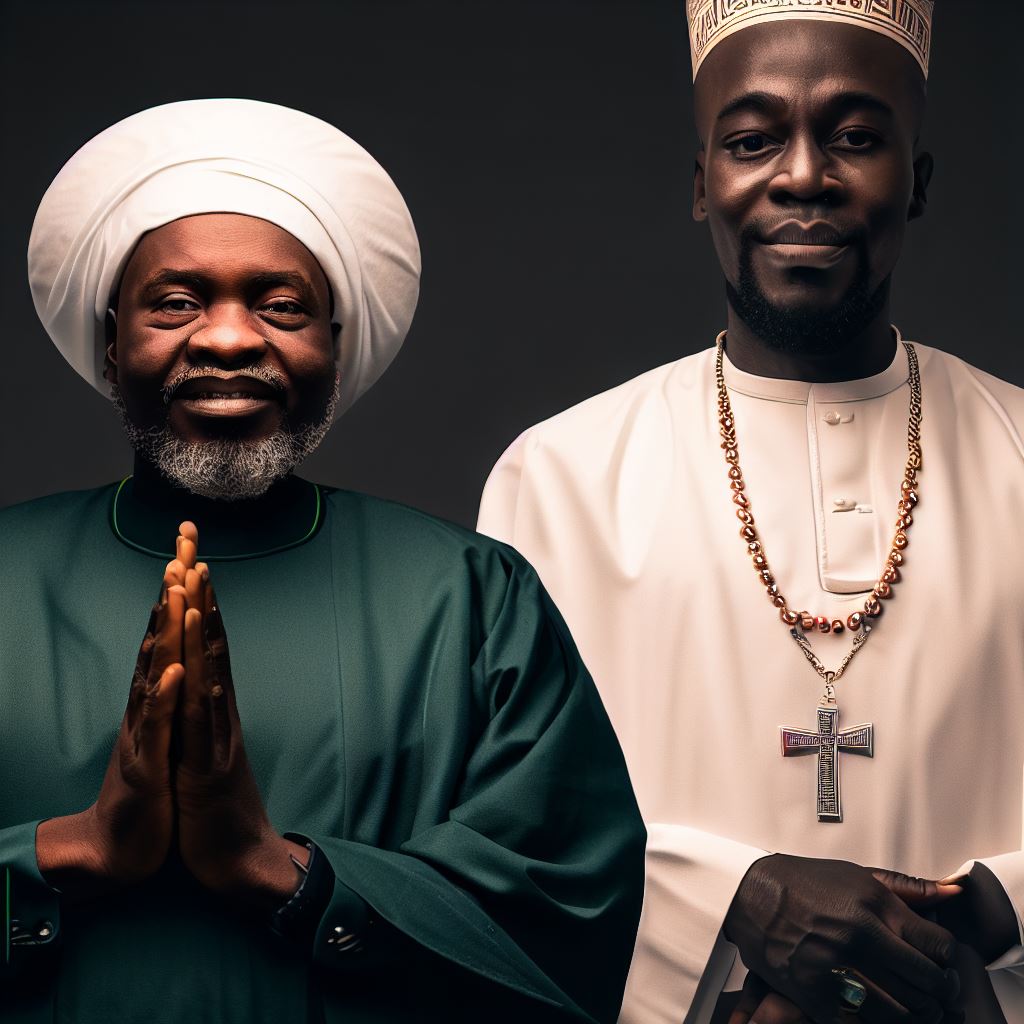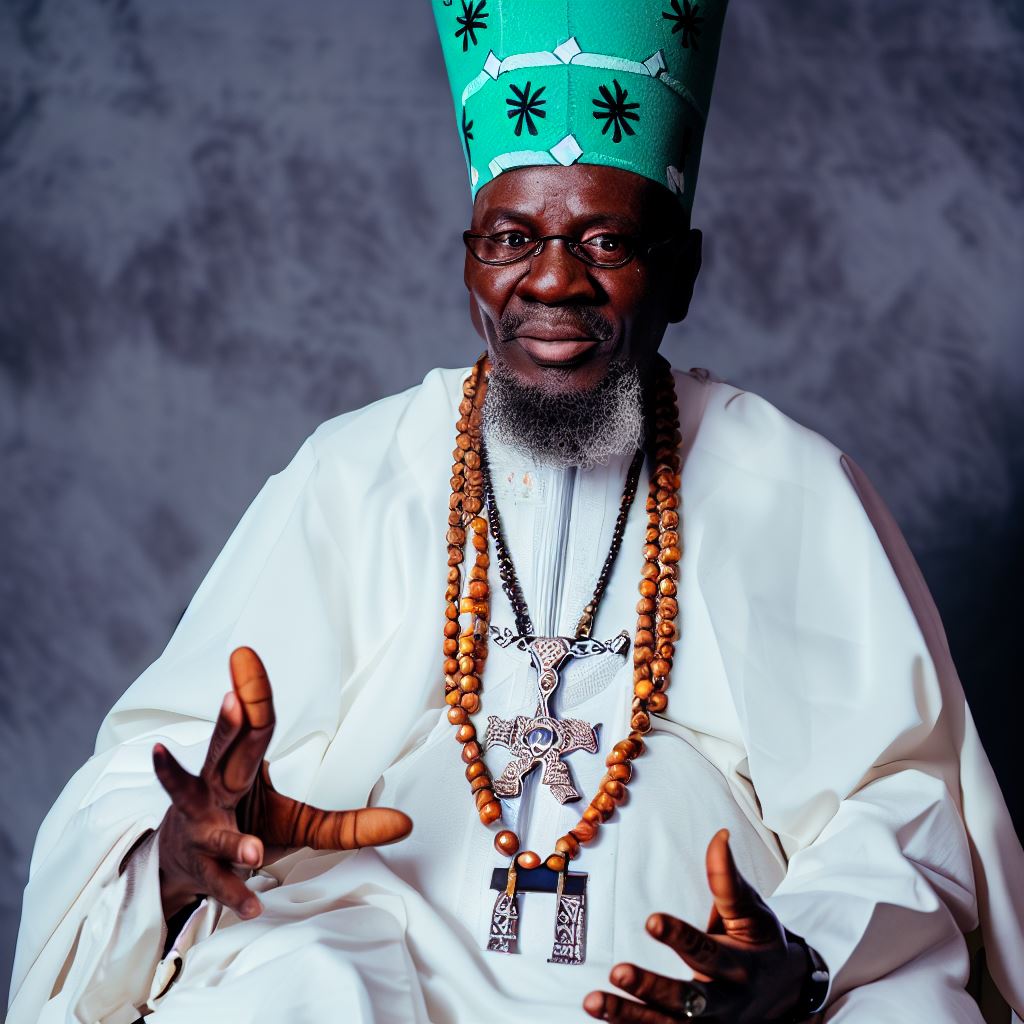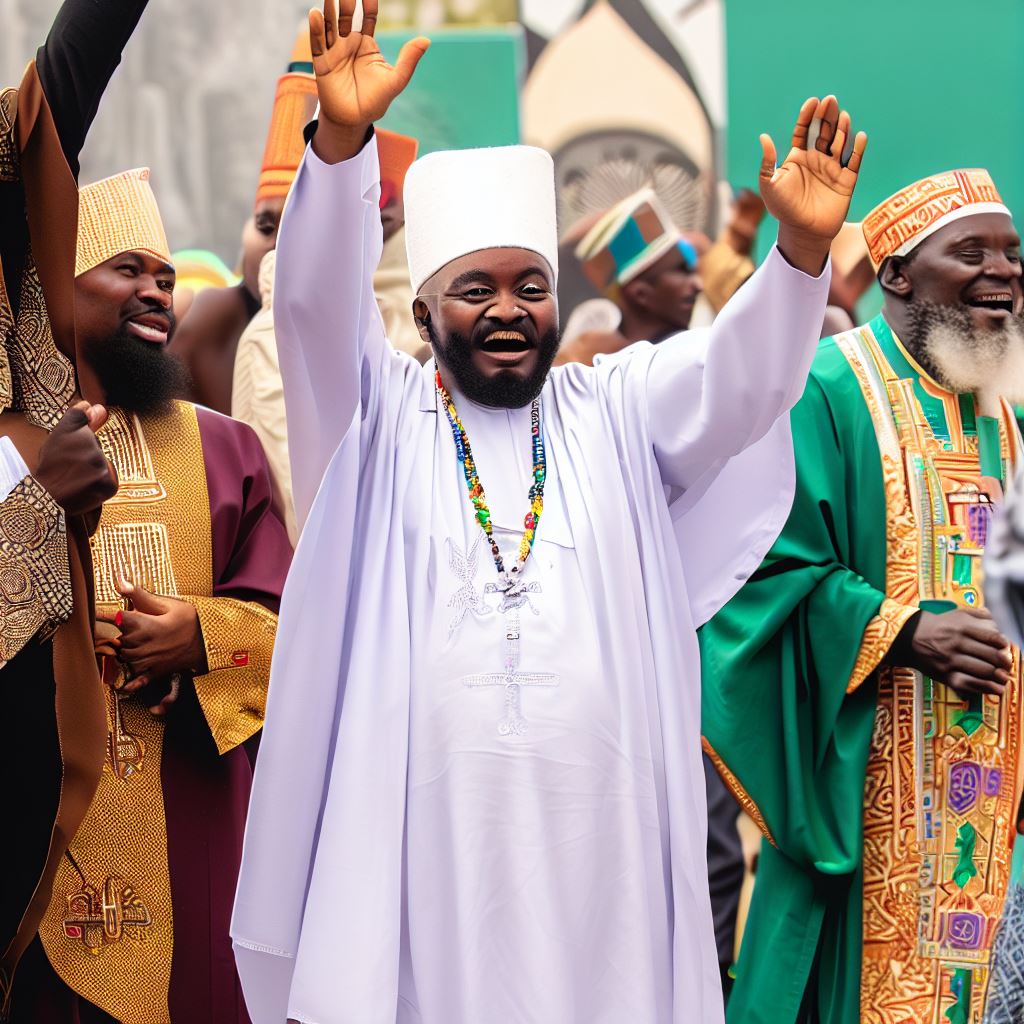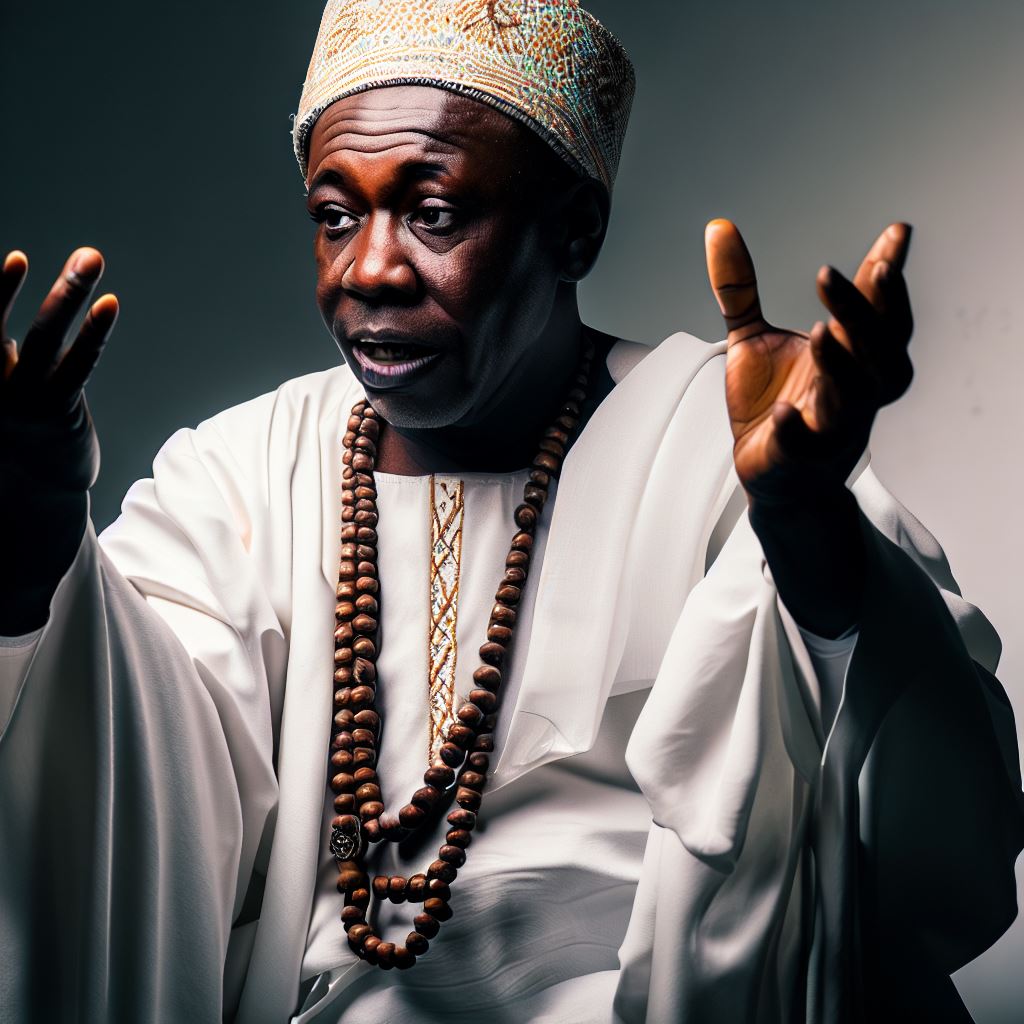Introduction
Clergy in the Digital Age: The clergy has always held immense importance in Nigeria, serving as spiritual leaders, counselors, and community guides.
They provide moral and ethical guidance, instilling values and beliefs in the people. However, as the world enters the digital age, the role of the clergy is evolving.
The advent of the digital age has brought technological advancements that have permeated various spheres of life, including religion.
Digital media, social networking platforms, and online communities have created new avenues for communication, outreach, and engagement.
This exploration seeks to delve into the implications and challenges faced by Nigeria’s clergy in this digital age.
It aims to understand how they are adapting to the changing landscape, utilizing technology to reach out to their congregations, and ensuring effective communication and connection.
Furthermore, this exploration aims to analyze the purpose and role of the clergy in the digital age.
It will delve into the potential benefits and drawbacks that technology brings to their pastoral work, such as expanding their reach, enabling online worship services, or facing difficulties in maintaining personal connections.
By examining these aspects, we can gain valuable insights into how the clergy can effectively navigate and leverage digital tools to fulfill their spiritual duties and connect with the faithful in new and innovative ways.
This exploration will shed light on the impact of the digital age on Nigeria’s clergy and help guide their future endeavors in this ever-evolving landscape.
Traditional Roles of Nigeria’s Clergy
A. Religious teachings and sermons
- Clergy members in Nigeria play a crucial role in imparting religious teachings to their congregations.
- They deliver sermons that focus on the scriptures and provide spiritual insights and guidance.
- Through their teachings, clergy members encourage believers to deepen their faith and live righteous lives.
- Religious teachings also include educating the community on religious customs, traditions, and rituals.
B. Conducting sacraments and ceremonies
- Clergy members are responsible for administering sacraments such as baptism, confirmation, and communion.
- They officiate at weddings, funerals, and other important ceremonies within the religious community.
- Through these sacraments and ceremonies, the clergy strengthen the faith of believers and foster a sense of unity.
- They ensure that these rituals are conducted according to religious customs and traditions.
C. Providing spiritual guidance and counseling
- Clergy members serve as trusted sources of spiritual guidance and counseling for individuals and families.
- They offer moral support and comfort to those facing challenges or difficult life situations.
- Through counseling, the clergy help individuals find meaning, purpose, and direction in their lives.
- They provide advice on ethical dilemmas, personal growth, and resolving conflicts.
D. Promoting moral values in society
- One of the key roles of Nigeria’s clergy is to promote moral values within the larger society.
- They advocate for honesty, compassion, justice, and respect for others.
- Clergy members engage with their communities to address social issues and promote positive change.
- By advocating for moral values, they contribute to the development of an ethical and harmonious society.
The traditional roles of Nigeria’s clergy encompass religious teachings and sermons, conducting sacraments and ceremonies, providing spiritual guidance and counseling, and promoting moral values in society.
These roles are vital for the growth and well-being of both individuals and the community as a whole.
Read: Challenges Faced by Nigeria’s Clergy: An Insightful Look
Evolution of the Clergy in the Digital Age
A. Embracing social media platforms
- Social media has become a powerful tool for the clergy to reach out and connect with their followers.
- Platforms such as Facebook, Twitter, and Instagram allow clergy members to share messages, inspirational quotes, and updates.
- Through social media, the clergy can engage in conversations, answer questions, and provide guidance to a wider audience.
- Social media platforms also allow for the sharing of live videos, photos, and stories, creating a more interactive experience.
B. Utilizing websites and online resources
- Many clergymen and women now have personal websites to share their teachings and ideas with a global audience.
- These websites often include articles, sermons, blog posts, and resources for spiritual growth.
- The clergy can utilize online resources such as podcasts and digital libraries to enhance their knowledge and reach more people.
- With the help of websites, the clergy can easily update their followers about upcoming events, conferences, and workshops.
C. Live streaming religious events and services
The digital age allows the clergy to reach beyond the physical constraints of their religious spaces.
Live streaming religious events and services enables those who are unable to attend in person to still participate and be spiritually connected.
Through live streaming, the clergy can extend their reach globally, allowing people from different parts of the world to join their services.
Live streaming also provides an opportunity for followers to engage in real-time by commenting, asking questions, and receiving immediate responses.
D. Engaging with followers through digital communication
The digital age has revolutionized communication and the way the clergy interacts with their followers.
Clergy members can use email newsletters and online forums to stay connected with their followers on a regular basis.
Digital communication allows for personalized messages, prayer requests, and encouragement, fostering a sense of community.
The clergy can also take advantage of video conferencing and online counseling to provide guidance and support to their followers.
The clergy in Nigeria have embraced the digital age and utilized various platforms to connect with their followers.
Through social media platforms like Facebook and Twitter, they can engage in conversations and share updates.
Personal websites and online resources enable them to reach a global audience and provide spiritual content. Live streaming of religious events and services allows for wider participation and engagement.
Digital communication provides a means for personalized interactions and support.
The evolution of the clergy in the digital age has expanded their reach, allowing them to fulfill their role as spiritual leaders in new and innovative ways.
Read: The Economic Impact of the Clergy Profession in Nigeria
Opportunities and Challenges of the Digital Age for Nigeria’s Clergy
A. Increased reach and accessibility to a wider audience
The digital age has opened up new avenues for Nigeria’s clergy to reach a wider audience.
With the use of social media platforms, websites, and online streaming services, religious leaders can now spread their messages to people across the country and even on a global scale.
This has allowed them to connect with individuals who may not have had the opportunity to attend physical religious gatherings.
B. Challenges in maintaining authenticity and credibility
While the digital age has provided opportunities for Nigeria’s clergy to reach a wider audience, it has also presented challenges in maintaining authenticity and credibility.
With the rise of fake news and online scams, religious leaders need to be cautious about the information they share online and ensure that their digital presence aligns with their values and teachings.
This requires careful monitoring and management of online content to maintain the trust of their followers.
C. Balancing between virtual and physical engagements
As the digital age offers various virtual engagement platforms, Nigeria’s clergy must find a balance between virtual and physical engagements.
While online interactions provide convenience and accessibility, there is still a need for personal and physical connections.
It is important for religious leaders to continue organizing physical gatherings and events to foster a sense of community and strengthen relationships with their followers.
D. Managing online criticism and trolls
The digital age has also brought along online criticism and trolls, posing a challenge for Nigeria’s clergy.
As religious leaders gain visibility online, they may face harsh criticism, cyberbullying, or trolling.
It is crucial for them to develop strategies to handle such situations with grace and poise, while maintaining their focus on delivering their spiritual messages and teachings.
To overcome these challenges and make the most of the opportunities presented by the digital age, Nigeria’s clergy can adopt certain strategies:
- Embrace technology and digital platforms: Religious leaders should actively embrace technology and leverage social media platforms, websites, and streaming services to reach a wider audience.
- Maintain transparency and authenticity: It is essential for religious leaders to be transparent in their online presence, ensuring that their messages and actions align with their teachings.
- Engage in meaningful online interactions: Nigeria’s clergy should actively engage with their online followers, responding to their queries, sharing relevant content, and promoting a sense of community.
- Develop a crisis management strategy: Religious leaders need to have a plan in place to manage online criticism and deal with trolls effectively.
This may involve monitoring and moderating discussions, amicably addressing concerns, and, if necessary, seeking legal assistance. - Balance virtual and physical engagements: While embracing virtual platforms, religious leaders should continue organizing physical gatherings and events to maintain personal connections and strengthen their relationship with their followers.
the digital age offers both opportunities and challenges for Nigeria’s clergy. Through increased reach and accessibility, they can spread their messages to a wider audience.
Read: Balancing Tradition and Modernity in Nigeria’s Clergy
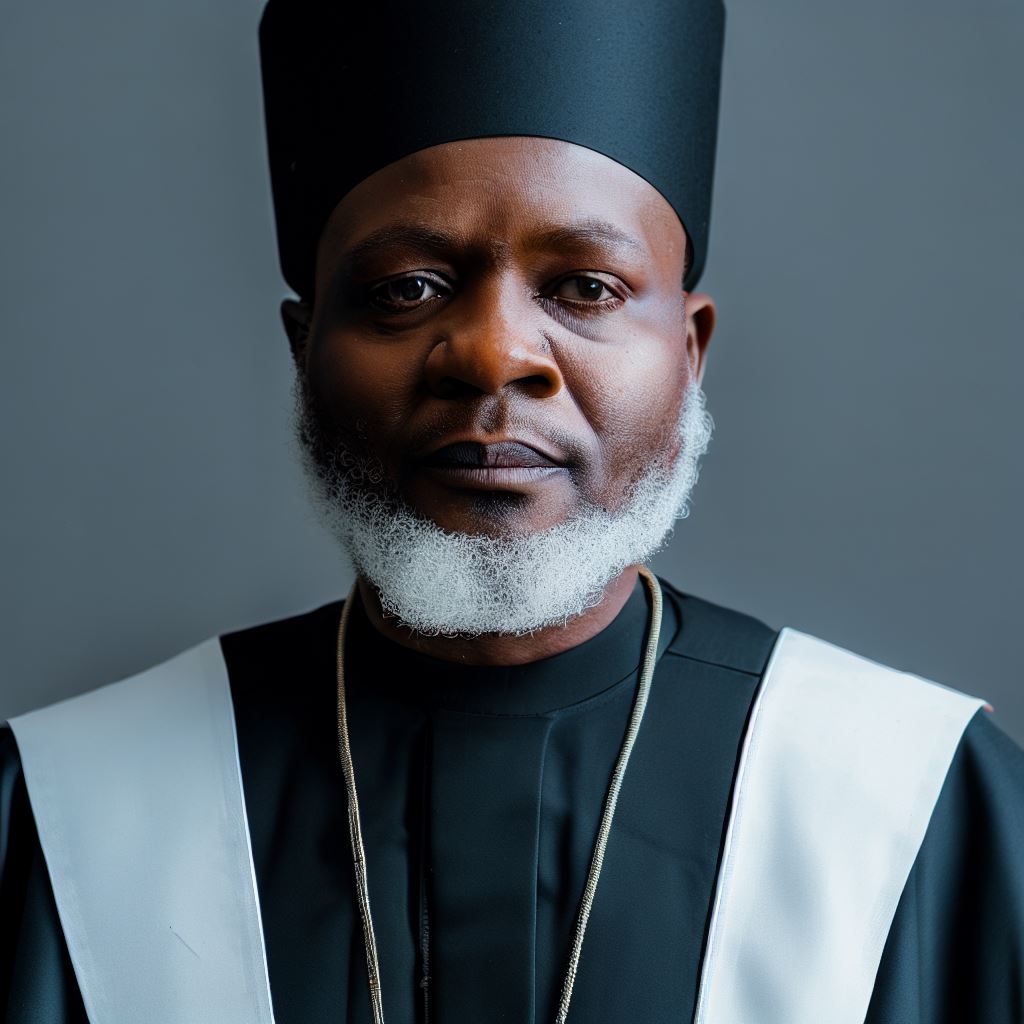
Impact of the Digital Age on Nigeria’s Church Community
A. Strengthening religious education and awareness
In the digital age, the Nigerian church community has experienced a significant impact when it comes to religious education and awareness.
With the rise of the internet and social media platforms, religious teachings and messages can now reach a wider audience.
Churches can now use online platforms to share sermons, Bible studies, and religious literature.
This accessibility allows individuals to deepen their knowledge of the scriptures and engage more actively in religious discussions.
Furthermore, the digital age has made it easier for churches to organize virtual workshops, training sessions, and conferences, allowing people from different locations to participate and learn from renowned religious leaders.
B. Fostering a sense of belonging and community
The digital age has revolutionized the way Nigeria’s church community fosters a sense of belonging and builds a strong community.
Online platforms and social media groups provide a space for church members to connect and engage with one another.
Through online prayer groups, support networks, and discussion forums, individuals can find comfort, share their testimonies, seek advice, and celebrate milestones together, bridging the gap between physical church gatherings.
Moreover, churches can use digital platforms to organize virtual church events and worship services, ensuring that members who are unable to attend physically can still feel connected and involved.
C. Enhancing charitable and outreach programs
The digital age has opened up new avenues for Nigeria’s church community to enhance their charitable and outreach programs.
Online platforms provide an efficient way to raise funds and organize campaigns for various social causes.
Churches can now utilize crowdfunding platforms, social media campaigns, and online payment systems to gather donations, support humanitarian initiatives, and provide relief to those in need.
Furthermore, digital platforms allow church members to actively participate in volunteering efforts remotely.
They can participate in online mentoring programs, contribute their skills through virtual workshops, and engage in awareness campaigns for social issues.
D. Addressing societal issues through online platforms
The digital age has given Nigeria’s church community a powerful tool to address societal issues through online platforms. Churches can now share their perspectives and engage in debates on various topics.
Through blogs, podcasts, and video content, religious leaders can express their opinions on social, political, and moral issues that affect the Nigerian society.
Online platforms also provide a space for individuals to discuss and engage with these perspectives, fostering critical thinking and dialogue within the church community.
Additionally, churches can use online platforms to advocate for social justice, raise awareness about human rights violations, and mobilize their members to take action towards positive change.
The impact of the digital age on Nigeria’s church community has been extensive and transformative.
From strengthening religious education and awareness to fostering a sense of belonging and community, enhancing charitable programs, and addressing societal issues, the digital age has revolutionized the way the church operates in Nigeria.
As technology continues to evolve, it is essential for churches to adapt and embrace digital platforms to better serve their members and engage with the wider society.
Read: The Growth of Interfaith Dialogue in Nigeria’s Clergy
Criticisms and Concerns Surrounding Nigeria’s Clergy in the Digital Age
A. Fraudulent practices and online scams
- The digital age has given rise to a significant increase in fraudulent practices within Nigeria’s clergy.
- Some pastors and religious leaders exploit the online platform to deceive unsuspecting individuals for financial gain.
- Online scams, such as fake healing sessions or promises of blessings, have become prevalent in the digital space.
- The lack of regulation and oversight in the online religious community has allowed these fraudulent practices to thrive.
B. Questioning the authenticity of online religious experiences
- Many people express concerns regarding the authenticity of religious experiences in the digital age.
- Traditional religious practices emphasize the importance of physical presence and communal worship.
- The virtual realm can make it difficult to discern genuine religious experiences from fabricated ones.
- Skeptics argue that online interactions lack the depth and sincerity of face-to-face spiritual connections.
C. Potential loss of personal connections and spiritual depth
- The prevalence of digital platforms in Nigeria’s clergy has raised concerns about the loss of personal connections.
- Virtual interactions can feel impersonal and detached, reducing the intimacy and depth of spiritual experiences.
- Some individuals argue that the physical presence of a religious leader is crucial for a genuine spiritual encounter.
- The convenience of online religious services might lead to a decreased commitment to local communities and congregations.
D. Need for regulation and accountability in the digital space
- The digital age has necessitated the implementation of regulations and accountability measures for Nigeria’s clergy.
- Lack of oversight allows unscrupulous individuals to take advantage of vulnerable believers.
- Establishing guidelines and ethical standards for online religious practices would protect individuals from potential harm.
- Religious organizations and leaders must be held accountable for their actions in the digital realm.
The advent of the digital age has brought forth various criticisms and concerns surrounding Nigeria’s clergy.
Fraudulent practices and online scams have become rampant, exploiting innocent individuals.
The authenticity of online religious experiences is often questioned, as the virtual realm lacks the physical presence and communal worship emphasized in traditional practices.
Furthermore, the loss of personal connections and spiritual depth is a significant concern when relying solely on digital platforms.
To address these issues, regulations and accountability measures need to be established to protect believers and promote ethical online religious practices.
Conclusion
A. Recap of the clergy’s transition to the digital age
In this blog Post, we have explored Nigeria’s clergy and their journey into the digital age.
They have embraced technology to reach wider audiences and spread their message.
B. Emphasizing the importance of adapting to technological advancements
Adapting to technological advancements has become crucial for Nigeria’s clergy, as it allows them to connect with the younger generation and address contemporary issues effectively.
C. Encouraging a healthy balance between traditional and digital practices
While embracing technology, it is vital for the clergy to maintain a balance between traditional practices and digital advancements to cater to the diverse needs of their congregation.
D. Final thoughts on the future of Nigeria’s clergy in the digital age
In the future, Nigeria’s clergy will continue to thrive in the digital age by leveraging technology to expand their reach, foster unity, and inspire positive change within society.
As technology progresses, it is essential for the clergy to adapt and utilize digital tools effectively, keeping their core values intact.
Only by striking a healthy balance between tradition and innovation can Nigeria’s clergy truly thrive in the evolving digital landscape.
Nigeria’s clergy in the digital age have a vast potential to make a significant impact on society and guide the nation towards a brighter future.
By embracing the digital age, the clergy can connect with individuals from all walks of life, transcending physical boundaries and reaching a global audience.
Their ability to spread messages of love, hope, and faith through various online platforms will play a crucial role in shaping Nigeria’s future.
Therefore, it is imperative for Nigeria’s clergy to continuously adapt, learn, and evolve with technology in this dynamic digital era.

